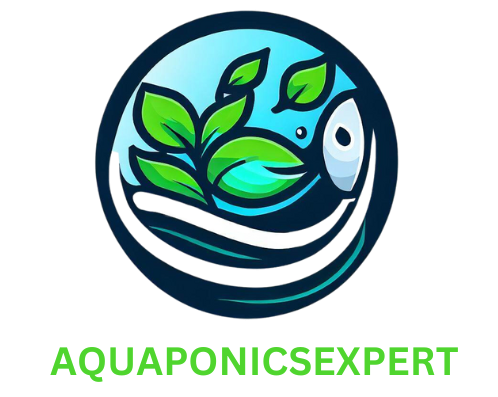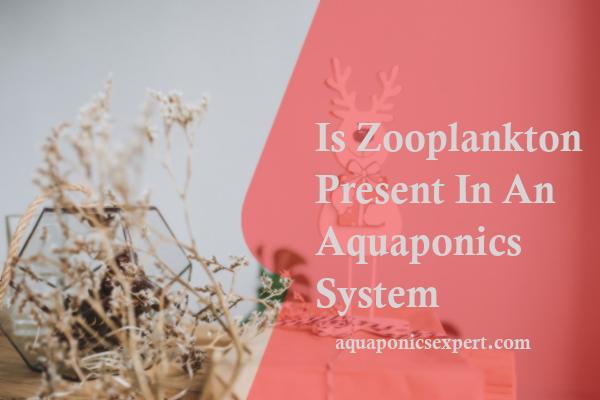Is Zooplankton Present In An Aquaponics System
Are you curious whether zooplankton can flourish in an aquaponics system? Well, the **answer is yes**! Zooplankton, which are microscopic organisms that play a crucial role in aquatic ecosystems, can indeed thrive in an aquaponics setup. This fascinating relationship between zooplankton and this innovative farming technique can greatly contribute to the overall health and productivity of the system. Let’s delve deeper into this intriguing topic and explore the essential role that zooplankton play in aquaponics.
Is Zooplankton Present In An Aquaponics System
Zooplankton refers to the small organisms that drift in water bodies and form a crucial part of the aquatic food chain. In an aquaponics system, which combines aquaculture (cultivating fish) and hydroponics (growing plants in water), the presence of zooplankton can have several benefits. Firstly, zooplankton serve as a natural source of food for fish in the system, supplementing their diet and promoting growth. Additionally, they contribute to nutrient recycling by feeding on organic matter and converting it into waste that can be utilized by the plants. This creates a sustainable and balanced ecosystem within the aquaponics system.
Zooplankton can be introduced to an aquaponics system in various ways. Some systems may already have zooplankton naturally present in the water source used or may utilize water from nearby natural systems. Alternatively, zooplankton can be introduced manually through the addition of organisms such as Daphnia or copepods, which are commonly used in aquaponics systems. These organisms can reproduce rapidly under favorable conditions, ensuring a constant supply of zooplankton within the system.
It is important to note that the presence of zooplankton in an aquaponics system requires careful management. Excessive levels of zooplankton can lead to overconsumption of fish feed and potential water quality issues. On the other hand, low levels of zooplankton may result in inadequate food supply for fish. Therefore, regular monitoring of zooplankton populations and maintaining a balance through appropriate feeding and stocking densities is crucial.
In conclusion, zooplankton plays a significant role in aquaponics systems by providing a natural food source for fish and aiding in nutrient cycling. Introducing and managing zooplankton in the system is vital for ensuring sustainability and maintaining a healthy ecosystem. By understanding the benefits and considerations associated with zooplankton presence, aquaponics practitioners can optimize their system for efficient fish growth and plant cultivation.
What Is The Role Of Zooplankton In An Aquaponics System?
Zooplankton refers to small organisms that drift in the water column and serve as a crucial component of the aquatic food web. In an aquaponics system, which combines aquaculture (fish farming) with hydroponics (cultivating plants in water), the presence of zooplankton can greatly benefit the overall ecological balance. Zooplankton in aquaponics systems are primarily found in the water where the fish reside, as they play an essential role in maintaining water quality and nutrient cycling.
In an aquaponics system, fish excrete waste in the form of ammonia. This ammonia needs to be converted into nitrate by beneficial bacteria through the nitrification process to avoid toxicity. Zooplankton actively consume these nitrate-rich bacteria, preventing their overabundance and the potential negative effects on fish health. As a result, zooplankton indirectly contribute to the reduction of ammonia and nitrate levels, enhancing the water quality for both fish and plants.
Furthermore, zooplankton serve as a valuable food source for fish in aquaponics systems. Many fish species, especially juvenile ones, rely on zooplankton as a primary protein source. By introducing zooplankton into the system, not only can the fish be provided with a natural and nutritious diet, but also the reproduction and growth rates of the fish can be enhanced.
How Do Zooplankton Affect Water Quality In An Aquaponics System?
Yes, zooplankton can be present in an aquaponics system. Zooplankton are small organisms that drift in aquatic environments, including both freshwater and marine ecosystems. They are important components of the food chain as they serve as a primary food source for many fish species. In an aquaponics system, which combines hydroponics (cultivating plants in water) and aquaculture (cultivating aquatic animals), zooplankton can play a crucial role in the overall ecosystem.
Zooplankton can enter the aquaponics system through various ways. They may be initially present in the water used to fill the system, or they can be introduced intentionally as a food source for the aquaculture component of the system. Additionally, zooplankton can naturally colonize the system by reproducing and thriving in the nutrient-rich environment created by the waste generated by the fish. They often consume algae and other organic matter, helping to maintain water quality by reducing excess nutrients.
The presence of zooplankton in an aquaponics system has several benefits. Firstly, they provide a natural food source for the fish, helping to supplement their diet and promote optimal growth. Secondly, they contribute to the overall health of the system by consuming excess nutrients, which can prevent imbalances in water chemistry. Furthermore, zooplankton can enhance biodiversity within the system and create a more stable ecosystem, as they serve as prey for larger organisms such as fish. Overall, the presence of zooplankton in an aquaponics system can contribute to the sustainability and efficiency of the system, while simulating a more natural, self-regulating environment.
How Do Zooplankton Contribute To Nutrient Cycling In An Aquaponics System?
Zooplankton are tiny aquatic organisms that play a crucial role in the food web of various aquatic ecosystems, including aquaponics systems. These organisms are often found in the water column and serve as a valuable food source for other organisms higher up in the food chain, such as fish and crustaceans. Zooplankton in aquaponics systems can comprise a wide range of organisms, including copepods, rotifers, daphnia, and various larvae.
In aquaponics systems, zooplankton are typically introduced into the system intentionally or may naturally colonize the environment through the introduction of other organisms. They are an essential component of the system as they help to break down organic matter and convert it into forms that are more readily accessible for plants. By consuming excess nutrients and organic waste, zooplankton contribute to maintaining water quality in the aquaponics system.
Furthermore, zooplankton serve as a valuable live food source for fish and other aquatic organisms in the system. They provide a natural and nutritious diet, promoting optimal growth and health. The presence of zooplankton in an aquaponics system is an indicator of a healthy and well-balanced ecosystem, as their abundance reflects the availability of food and appropriate environmental conditions.
Are There Specific Species Of Zooplankton Beneficial For Aquaponics?
Zooplankton, being small aquatic organisms, play an essential role in maintaining the delicate balance within an aquaponics system. Their presence in such a system is highly beneficial as they contribute to various ecological functions. Firstly, zooplankton serve as a valuable source of live feed for fish present in the system. The fish, particularly herbivorous and omnivorous species, rely on zooplankton as a significant part of their diet. This natural food source ensures optimal growth and development of the fish and enhances their overall health.
Moreover, zooplankton perform an essential role in the nutrient cycling within an aquaponics system. These tiny organisms consume organic matter, including uneaten fish feed, dead plant material, and other debris in the water, thereby promoting the breakdown of organic matter. Through their feeding activities, they assist in the decomposition process and convert organic waste into smaller particles.
Another crucial function served by zooplankton is their role as biological indicators. The presence of zooplankton in an aquaponics system serves as a sign of a healthy and balanced environment. The abundance and diversity of zooplankton species provide valuable insights into the overall health status of the system. A well-established and thriving zooplankton community indicates a healthy ecological balance and nutrient availability within the system.
How Do Environmental Factors Impact Zooplankton Populations In An Aquaponics System?
Zooplankton, a diverse group of tiny animals that float freely in water bodies, are indeed present in aquaponics systems. These systems, which combine aquaculture (fish farming) and hydroponics (soilless plant cultivation), provide a well-balanced ecosystem for both plants and aquatic organisms. Zooplankton play a crucial role in these systems as they serve as an intermediate link between the primary producers (plants) and the primary consumers (fish).
One common type of zooplankton found in aquaponics systems is Daphnia, also known as water fleas. These microscopic organisms obtain their nutrients by grazing on algae and other organic matter present in the water. In turn, they provide a valuable food source for fish, as well as help maintain water quality by filtering out excess nutrients.
The presence of zooplankton in an aquaponics system indicates a healthy and balanced ecosystem. They contribute to the overall stability of the system by regulating the population of algae and other microorganisms. Moreover, zooplankton also play a crucial role in nutrient cycling, as their excretions provide additional organic matter for the growth of plants. Overall, the presence of zooplankton in aquaponics systems is important for maintaining water quality, supporting fish health, and promoting the overall sustainability of the system.
Conclusion
In conclusion, zooplankton play a crucial role in maintaining a balanced ecosystem in an aquaponics system. These microscopic organisms serve as a vital source of food for fish, helping to ensure their growth and overall health. Additionally, zooplankton aid in water filtration by consuming algae, thus reducing the risk of nutrient imbalance and promoting water clarity. Their presence in the system also indicates a healthy and thriving environment, as they are indicators of good water quality. Overall, the inclusion of zooplankton in an aquaponics system is highly beneficial, contributing to the success and sustainability of the system by supporting the growth of fish and maintaining water quality.







